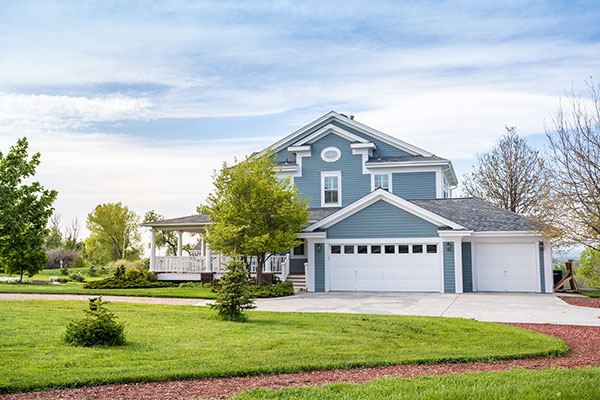
1. Timing is Everything: Pick the Right Season
The best time to paint your house is during mild, dry weather—typically spring or fall. High humidity, rain, or extreme heat can ruin paint adhesion and drying.
Pro Tip: Ideal temperatures are between 50°F and 85°F with low humidity.
2. Choose the Right Paint for the Job
Not all paint is created equal. Choose exterior-grade paint for durability and consider factors like:
- Latex vs. Oil-based (latex is easier to clean)
- Matte vs. Satin vs. Glossy finishes
- UV resistance for sun-exposed walls
Bonus: Investing in premium paint reduces future repainting costs.
3. Prep Work Makes or Breaks the Job
A quality paint job starts before the first brushstroke. Proper prep includes:
- Power washing to remove dirt and mildew
- Scraping off old, flaking paint
- Sanding rough spots
- Caulking gaps and cracks
- Priming bare or patched surfaces
Skipping prep = peeling paint.
4. Check for Wood Rot or Damage
Painting over damaged surfaces is a waste of time and money. Inspect for:
- Wood rot
- Insect damage
- Cracks or soft spots
Tip: Replace or repair issues before painting begins.
5. Color Matters More Than You Think
Color doesn’t just affect curb appeal—it influences heat absorption, home value, and HOA compliance.
Use tools like Sherwin-Williams’ ColorSnap or consult a pro for advice on trending yet timeless choices.
6. Know the Local Rules and HOA Guidelines
Some neighborhoods require approval before making major exterior changes, including paint color.
Avoid fines or delays—check city codes and HOA rules before you start.
7. DIY or Hire a Pro?
Painting seems simple—until you're on a ladder with a gallon of paint in 90°F weather.
Pros of hiring a contractor:
- Faster turnaround
- Professional finish
- Proper equipment
- Warranty on work
Pro Tip: Ask for references, insurance, and a detailed quote.
8. Protect Landscaping and Fixtures
Plants, lights, walkways, and windows need protection. A professional painter will:
- Cover shrubs and flower beds
- Tape around light fixtures
- Remove screens, hardware, and address numbers as needed
9. Plan for Cleanup and Touchups
Make sure your contract includes:
- Full site cleanup
- Proper disposal of leftover materials
- A walkthrough for final touchups
This separates the pros from the amateurs.
10. Ask About Paint Warranties and Guarantees
Some paints come with lifetime warranties, but read the fine print. Professional painters may also offer labor guarantees for 2–5 years.
Bonus Tip: Keep leftover paint for future touchups and color matching.
Final Thoughts: Make It Count
Painting your home is an investment. Whether you’re refreshing curb appeal or prepping to sell, the quality of the job directly affects your home’s value and protection.
Don’t rush it. Plan, prep, and partner with the right team.
Ready for a Free Painting Quote?
At R Contracting Services, we’ve painted hundreds of homes across Snellville. Our team provides expert prep, high-quality materials, and a finish you’ll love.
Contact us today for a free quote and color consultation.

